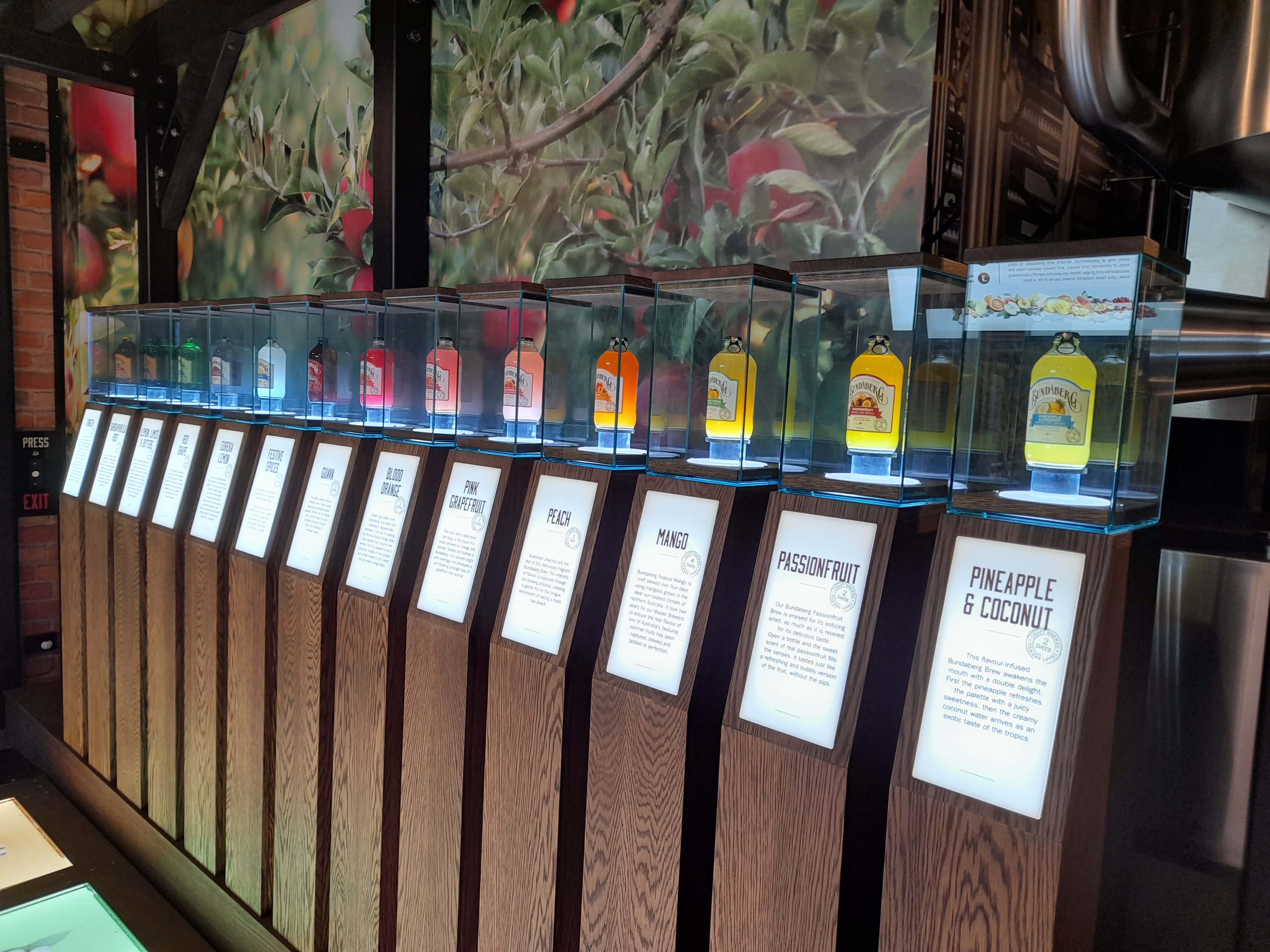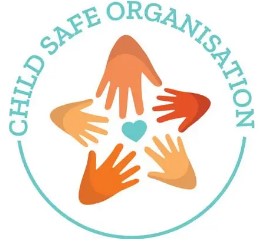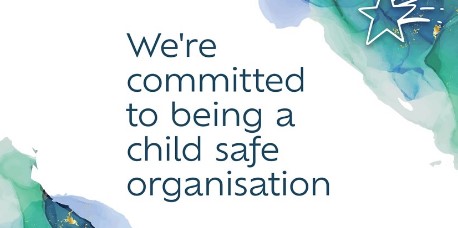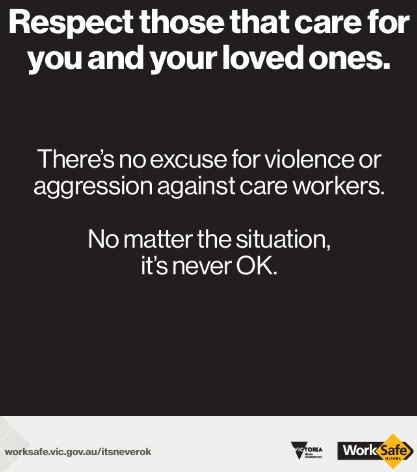October, 2025 No 11
From the Director’s Desk
Hello everybody,
In the school hols we got 2.5 days away from Proactive Support work and it was so refreshing to do something a bit different and enjoy the slow pace of a beautiful country town.
We got to travel by tilt train from Caboolture to Bundaberg which was smooth and had a bit more room than in an aeroplane (though not so fast!) and by bus, and lots of walking.
The Bundaberg Barrel was great! Did you know they brew Ginger Beer for 3 days and you should tip the bottle upside down before opening the cap?
They make 16 different flavours including pineapple and coconut, which is surprisingly yummy!
There are so many nice beaches at Bargara and you can walk for miles. I had ice cream for breakfast both days - decadent I know, but it IS my favourite food, and it WAS my birthday!
Next month the turtles will start hatching and although we didn't go there you can visit the Mon Repos Conservation Park at Burnett Heads to find out all about them.
I enjoyed seeing the acres and acres of sugarcane and macadamia farms stretching out, and the sound of rain and thunder in a tropical storm at night.
What did you do for the holidays? Something nice, I hope!
Enjoy this month's newsletter - from Beatrice, PS Director
.jpg)
.jpg)


NDIS Focus
“Would we fund it?”
The “Would We Fund It” guide from the NDIS helps participants understand how the NDIA decides whether a support is considered reasonable and necessary. It doesn’t list every possible item, but instead focuses on the supports that people most often ask questions about or find confusing. The guide explains what the NDIS looks at when making decisions, such as whether the support is directly related to your disability, whether it will help you live more independently or take part in everyday life, and what other supports you may already receive from health services, family, or the community.
SOME EXAMPLES OF SUPPORTS COVERED
Here are some of the kinds of supports the guide talks about, and whether or not they’re typically funded:
- Specialised footwear or medical-grade shoes (e.g. custom shoes or modifications) when needed because of disability.
- Smart Devices (like iPads or tablets): The NDIS may fund a smart device if it’s needed to use a specific disability support (for example, an app for communication). But it won’t fund them if they’re just for general use like browsing the internet, watching videos, or social media.
- Gym Memberships: The NDIS usually won’t fund a general gym membership because that’s considered an everyday expense. However, if exercise is part of your disability support (e.g. prescribed by a physiotherapist or exercise physiologist), they may fund the specialist supports rather than the membership itself.
- Continence Consumables: Items like catheters, pads, and other continence products can be funded if they are directly related to your disability and needed for daily life. These are often included under core supports in an NDIS plan.


We spent 3.5 hours fishing near Ned’s Gulley, catching various fish including Tailors and a shovel nose shark. A big lure catch and Geoff’s BBQ lunch were the highlights of the trip
.jpg)
.jpg)
Tab’s Talking
The client-Support worker relationship can become quite personal; you are in their home and in their lives, and even with everyone having the best intentions some (hopefully small) conflicts of interest are almost unavoidable. From my experience it seems that after a while we do become ‘familiar’ with each other and some of the initial level of respect and consideration can slip away…
When there is a Issue:
PREPARE AND REFLECT
1.What has happened?
2. How did it make you feel?
Write down a few key points that will help you to focus and stay calm during the conversation, and be ready to listen as much as you speak.
CHOOSE THE RIGHT SETTING/CONSIDER HAVING SOMEONE WITH YOU
It could be a trusted family member, or even another support worker.
BE CLEAR AND DIRECT WITH EACH OTHER
While it’s important to be empathetic, it’s just as important to be clear and direct about the issue at hand. Any example you could give would help while having the conversation. I have a difficult conversation coming up myself. I have a client with flexible hours of care but the parents have lately been very slow in responding each time when I ask the ‘when-will-you-need-me’ question, to the point that I won’t know the time until a couple of hours before I should be standing in front of their house, which makes planning the day quite challenging…
They are good people so we will hopefully have a great chat and it will help.
On that note: I trust your day is a great one!
And remember to be the best version of YOU- Love Tabs

Staff Focus
Hi, my name is Tim and I’m a support worker at Proactive Support. I’ve been working here for six months.
Before this, I spent nearly twenty years in the automotive industry. When COVID hit, I lost my job like many others, and it gave me time to reflect on what I wanted to do next. I started volunteering at a community centre in the city and found that I really enjoyed engaging with people and making a meaningful difference in their lives. That experience encouraged me to enrol in an individual support course, which eventually led me to this role.
What I enjoy most about being a support worker is building relationships with my clients and knowing I’m making a positive impact in their lives. One of my favourite activities is taking participants to New Farm parklands—it’s great to grab some food and sit by the river. A special moment for me has been supporting a client who was very shy when we first started going to a dog park together. After visiting weekly for a few months, I’ve seen his confidence grow and it’s been amazing to watch him interact more comfortably with people in the community.
For me, the most important part of supporting participants is listening to what they want to achieve and then finding ways to help them reach those goals. My tip for new staff is to be patient and go with the flow. Get to know your clients and don’t be afraid to get creative with community access ideas.
Outside of work, I’m a car enthusiast. I love tinkering with projects, and my 12-year-old daughter shares the same passion. We spend weekends together going to different automotive events. If I could travel anywhere in the world, I would love to explore Egypt.- Tim, Support Worker
WHS TIP: Safe Work Month
- Tip: Using PPE Correctly
- Make sure gloves, masks, or other equipment are worn properly and in good condition to prevent injury or illness.
- Safe Work Australia
- Personal Protective Equipment

October is National Safe Work Month, a time to raise awareness about the importance of health and safety in the workplace. It’s an opportunity for employers, workers, and the community to come together to promote safe practices, reduce risks, and create safer work environments for everyone. This year’s theme of ‘Safety: Every Day, every Job’ highlights that a safe and healthy workplace benefits both individuals and businesses, ensuring that everyone goes home safely at the end of the day. If you have any questions about our Work Health and Safety Policy or safe work practices, please get in touch.
For more information, please visit National Safe Work Month 2025 | Safe Work Australia

Queensland Mental Health Week will be held from 4th –12th October 2025. It encourages all of us to think about our mental health and wellbeing, regardless of whether we may have a lived experience of mental illness or not, and encourages help seeking behaviours, when needed. The week also gives us the opportunity to understand the importance of mental health in our everyday lives. It affects how we think, feel, and act. It also helps determine how we handle stress, relate to others, and make choices. If you need to talk to someone, please call Geoff, or reach out to 1300 MH Call (1300 642 255), Lifeline on 13 11 14 or Beyond Blue on 1300 22 4636.
For more information, please visit Queensland Mental Health Week | 4 – 12 October 2025
OUT AND ABOUT:
We went whale watching with Tasman Venture, departing from the Great Sandy Straits Marina in Hervey Bay. One very curious whale gave us some amazing close-up encounters. We thoroughly enjoyed the whole experience and even managed to capture some great photos to remember it by.
.jpg)
.jpg)
.jpg)
Joke
Why was the broom late for work?
Because he over swept!
Participant Focus: Getting Out and About with Proactive Support
At Proactive Support, we know that life is about more than just the day-to-day. Community access supports give participants the chance to get out, try new things, and connect with people in fun and meaningful ways. Whether it’s exploring a new hobby, catching up with friends, or simply enjoying the sunshine, these outings are all about building confidence, independence, and enjoyment. Our participants take part in a wide range of activities, tailored to their interests and goals. Some enjoy social outings like ten-pin bowling, darts, or visiting the local café for a chat over coffee. Others get creative with activities such as woodworking or art classes, while nature lovers might prefer trips to the park, or beach walks. Volunteering at the community radio station is another exciting option — participants can learn new skills, be part of a team, and even share their voice with the wider community. “I look forward to my weekly bowling trips — it’s not just about the game, it’s about seeing friends and having fun. I feel more confident every time I go.” “Going out into the community makes me feel connected. I love trying new things and knowing I have support to do it.” Community access can even stretch beyond the local area. Depending on your NDIS plan, you may be able to use your supports for a short respite trip with your support worker. This could mean a weekend away at the coast, a visit to family in another town, or exploring a new city. Respite trips are a great way to recharge, enjoy a change of scenery, and practice skills in a different setting — all while knowing you have the right support by your side. The best part is that community access looks different for everyone. At Proactive Support, we work with participants to plan outings that suit their needs, goals, and interests — making sure every trip out into the community is safe, supportive, and enjoyable. If you’d like to increase your community access shifts so you can do more things, call Geoff on 0448 389 324. If you’d like to change up the activities you do on your community access shifts, have a chat with your support worker or Geoff. Don’t forget, our wonderful SW Tanja has produced some “Regular things to do” guides for your region – give us a call if you would like a copy!
Joke
What do cows wear bells?
Their horns don’t work!
Staff Reminder
Mandatory Training Due: Child Safe Organisations (CSO) Training must be completed by 5th October. What it’s about: This training is part of our commitment to being a Child Safe Organisation. Didn’t get the training email? Please contact us straight away so we can resend it. Payment: You will be paid 1 hour for completing the training (unless you had a cancelled shift and complete it during that time).
- Please make sure this is completed before the due date.


Introducing Our Participant Focus Group!
At Proactive Support, your voice matters. We’re excited to announce the creation of a Participant Focus Group – a small team of participants who will be invited to share their thoughts and ideas to help shape our services and organisational decisions. This group will meet a few times a year to give feedback on new initiatives, policies, and programs. Your experiences and opinions will help us make sure our supports meet the needs of everyone we work with. If you’re interested in joining or want to learn more, please contact Beatrice at info@proactive-support.com.au. We’d love to hear from you!



